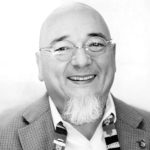
I am about to do a new thing; now it springs forth, do you not perceive it? I will make a way in the wilderness and rivers in the desert. (Isaiah 43:19 NRSV emphasis added)
Perceiving (yâda‛) in our circumstances is a human problem. “To know” is the most common translation of this Hebrew verb. But the New Revised Standard Version nuances the epistemic connotations to highlight an important question: how do we know what is true? This involves a process rather than a black-and-white or on-the-spot decision. Today we are familiar with change and with the role epistemic differences and perspectives play in defining what is truth. The verb yâda‛ occurs most often in the writings of three prophets of ancient Israel—Jeremiah, Isaiah, and Ezekiel—who directly confronted the most drastic and pervasive change for the people of the Abrahamic covenant during two exilic periods (Assyrian, ca. 720 BC, and Babylonian, ca. 586 BC).
Interestingly, from our 2021 perspective, there was a lot of fake news in those days! Jeremiah declared, “they are prophesying falsely in my name” (Jer 27:15). The big problem he addressed was how false prophets took the covenantal promises of the past and applied them to their day. But there was a change taking place, a change most Israelites were unqualified to perceive or know. (No wonder, in this context, yâda‛ is used by the prophet Jeremiah 75 times.)
Another prophet, Isaiah, indicated that only God parses truth, as he alone is the one “who frustrates the omens of liars, and makes fools of diviners; who turns back the wise, and makes their knowledge foolish” (Isa 44:25). The problem for any time of in between is that the understandings of truth based on solid evidences from the past cannot recognize or embrace new approaches, unless they are freshly perceived (i.e., yâda‛).
Albert Einstein seemingly seconds Isaiah’s riddle, that only by changing our epistemology—how we come to know—can we see the truth of what is taking place outside our control: “The world as we have created it is a process of our thinking. It cannot be changed without changing our thinking.”1 So also, two and a half millennia ago, Ezekiel warned against the “senseless prophets who follow their own spirit” (Ezek 13:3). The conundrum is this: on the one hand, we simply cannot help but follow “our own spirit” (how could we breathe through someone else?), but on the other hand, sometimes we need to be free from our spirits (our assumptions) in order to adjust to emerging realities and to grasp fresh truths.
The beauty of the concrete Hebrew ways is delightful for our in-between times: how will any of us adapt in the rapidly changing world in pandemic-plus times, not just surviving but thriving in the midst of incessant change? Perhaps by gleaning further from the prophets: by learning to breathe through the Spirit of God. Our own Amos Yong wrote something similar: “We think and live differently after the Spirit because we have been changed.”2

Johnny Ramírez-Johnson serves as professor of anthropology and profesor del Centro Latino at Fuller. Dr. Ramírez-Johnson’s primary research interest centers on the intersection between culture, ethnicity, and religion; he has received grants from Kaiser Permanente, the School of Religion at Loma Linda University, and the University of Texas-Pan American College of Health Science and Human Services to support his work. He coedited the book Can White People Be Saved?: Triangulating Race, Theology, and Mission with Amos Yong and Love L. Sechrest.
I am about to do a new thing; now it springs forth, do you not perceive it? I will make a way in the wilderness and rivers in the desert. (Isaiah 43:19 NRSV emphasis added)
Perceiving (yâda‛) in our circumstances is a human problem. “To know” is the most common translation of this Hebrew verb. But the New Revised Standard Version nuances the epistemic connotations to highlight an important question: how do we know what is true? This involves a process rather than a black-and-white or on-the-spot decision. Today we are familiar with change and with the role epistemic differences and perspectives play in defining what is truth. The verb yâda‛ occurs most often in the writings of three prophets of ancient Israel—Jeremiah, Isaiah, and Ezekiel—who directly confronted the most drastic and pervasive change for the people of the Abrahamic covenant during two exilic periods (Assyrian, ca. 720 BC, and Babylonian, ca. 586 BC).
Interestingly, from our 2021 perspective, there was a lot of fake news in those days! Jeremiah declared, “they are prophesying falsely in my name” (Jer 27:15). The big problem he addressed was how false prophets took the covenantal promises of the past and applied them to their day. But there was a change taking place, a change most Israelites were unqualified to perceive or know. (No wonder, in this context, yâda‛ is used by the prophet Jeremiah 75 times.)
Another prophet, Isaiah, indicated that only God parses truth, as he alone is the one “who frustrates the omens of liars, and makes fools of diviners; who turns back the wise, and makes their knowledge foolish” (Isa 44:25). The problem for any time of in between is that the understandings of truth based on solid evidences from the past cannot recognize or embrace new approaches, unless they are freshly perceived (i.e., yâda‛).
Albert Einstein seemingly seconds Isaiah’s riddle, that only by changing our epistemology—how we come to know—can we see the truth of what is taking place outside our control: “The world as we have created it is a process of our thinking. It cannot be changed without changing our thinking.”1 So also, two and a half millennia ago, Ezekiel warned against the “senseless prophets who follow their own spirit” (Ezek 13:3). The conundrum is this: on the one hand, we simply cannot help but follow “our own spirit” (how could we breathe through someone else?), but on the other hand, sometimes we need to be free from our spirits (our assumptions) in order to adjust to emerging realities and to grasp fresh truths.
The beauty of the concrete Hebrew ways is delightful for our in-between times: how will any of us adapt in the rapidly changing world in pandemic-plus times, not just surviving but thriving in the midst of incessant change? Perhaps by gleaning further from the prophets: by learning to breathe through the Spirit of God. Our own Amos Yong wrote something similar: “We think and live differently after the Spirit because we have been changed.”2
Johnny Ramírez-Johnson serves as professor of anthropology and profesor del Centro Latino at Fuller. Dr. Ramírez-Johnson’s primary research interest centers on the intersection between culture, ethnicity, and religion; he has received grants from Kaiser Permanente, the School of Religion at Loma Linda University, and the University of Texas-Pan American College of Health Science and Human Services to support his work. He coedited the book Can White People Be Saved?: Triangulating Race, Theology, and Mission with Amos Yong and Love L. Sechrest.
Oscar García-Johnson, academic dean for Centro Latino and associate professor of theology and Latino/a studies, imagines what it would take for the North American Seminary to be a space that wholly embraces Latinx people, scholarship, and experiences.